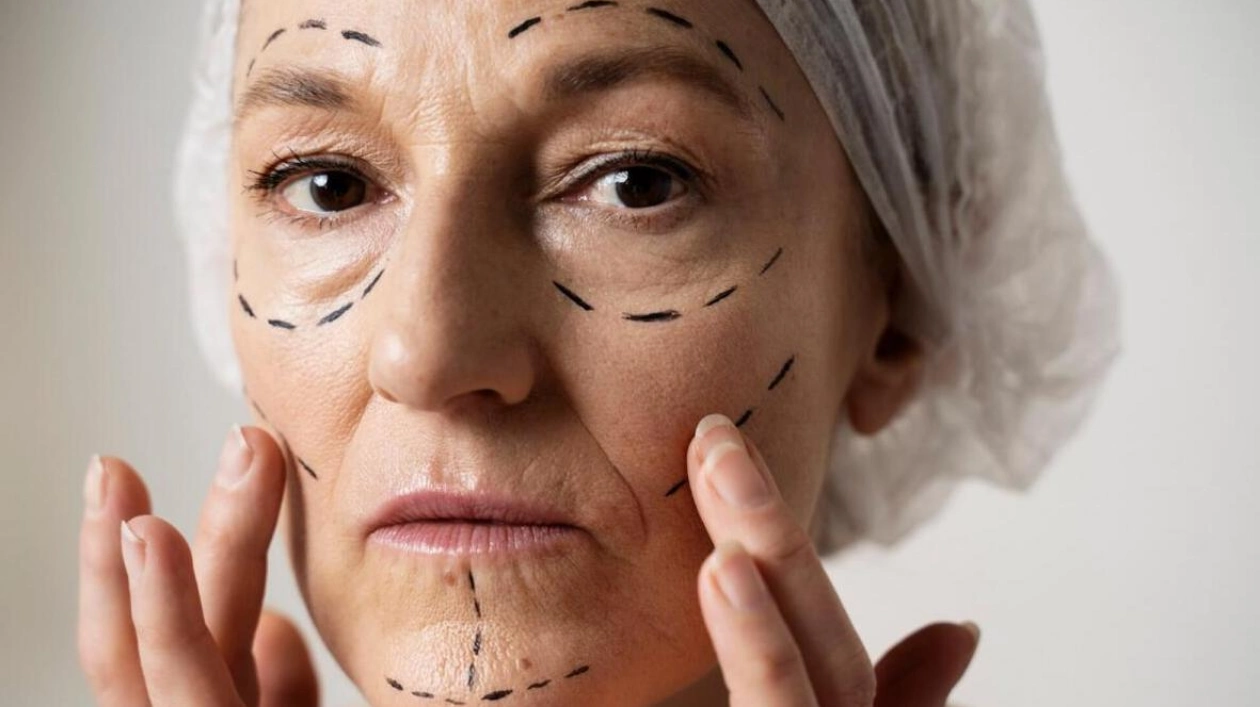A survey conducted by the World Obesity Foundation reveals a concerning trend in the United Arab Emirates: obesity is increasing, with an estimated 7.5 million people, including 700,000 adolescents and children, projected to be overweight or obese by 2035. The prevalence of sedentary lifestyles, facilitated by easy access to transportation and a lack of physical activity, has led many to turn to Ozempic, now widely regarded as a miraculous weight-loss drug. Over the past year, Ozempic has revolutionized the weight-loss industry, driven by social media influence, celebrity endorsements, and promises of rapid results, even among those not medically advised to use it.
Dr. Georgios Orfaniotis, a plastic surgeon with 15 years of experience in aesthetic and reconstructive surgery, notes that people, particularly those approaching menopause, are using Ozempic to shed unwanted pounds when traditional methods like diet and exercise fall short. He mentions similar products like Mounjaro as alternatives in the market.
Semaglutide, marketed under the names Ozempic and Wegovy, is primarily used as diabetes medication but has gained popularity as a weight-loss aid. Dr. Sophie Shotter, an aesthetic doctor and hormone specialist at Biolite Dubai, explains that these injections mimic the GLP-1 hormone, promoting a feeling of fullness and slowing digestion. She warns of the dangers associated with their use among unsuitable candidates.
Dr. Orfaniotis highlights the risks of using Ozempic before surgery, as it slows digestion, potentially leading to aspiration pneumonia. He also mentions the mental health issues associated with the drug, such as depression and suicidal thoughts, based on anecdotal evidence due to limited studies on its potential harms.
The term 'Ozempic Face' refers to the sunken and hollow appearance of the face, particularly around the eyes, and the prominence of fine lines and jowls resulting from rapid weight loss. Dr. Maria Thomas, a dermatologist at Zia Medical Centre in Dubai, explains that the rapid weight loss leaves insufficient time for the skin to adapt, leading to sagging and loss of volume.
Dr. Aiza Jamil, a consultant dermatologist at Healthpoint in Abu Dhabi, identifies rapid weight loss as the main cause of Ozempic Face, noting that it outpaces the skin's adaptability, especially in areas previously supported by fat. This has led to an increase in requests for face rejuvenation surgery.
Dr. Shweta Singh, a dual board-certified dermatologist at Minal Medical Centre, observes a rise in cases of Ozempic Face in the UAE, attributing it to drastic and rapid weight loss. She emphasizes the importance of preventive treatments and awareness about the drug's side effects.
Dr. Minal Patwardhan Andrade, the founder of Minal Medical Centre, advises starting preventive treatments alongside weight-loss efforts to mitigate the effects of Ozempic Face. She recommends a high-protein diet and strength training to support muscle mass.
Treatments like Sculptra and energy-based devices such as EMFACE are recommended to restore lost volume and tighten skin. Dermatologists also suggest regular use of skin boosters and skincare products rich in hyaluronic acid, retinols, vitamin C, and peptides.
Strict control over the dispensing of Ozempic and careful selection of suitable candidates by physicians are crucial to preventing its harmful side effects. Dr. Thomas emphasizes that weight loss requires a commitment to food discipline and exercise, not just medication. Hydration and a balanced diet rich in essential nutrients and protein are also vital.
A holistic approach to managing Ozempic Face involves counseling patients on healthy eating, regular exercise, and stress management. Dr. Andrade prescribes dietary supplements and advises a protein-rich diet, tailoring each approach to the patient's unique needs.






